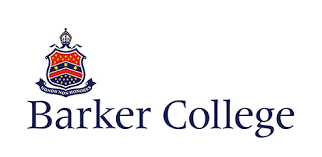Reimagining Writing Imaginarium


An Invitation to the Reimagining Writing Imaginarium
Tuesday evenings, 4, 11, 18 May 2021
This Imaginarium offers an exciting opportunity to (re-)connect with colleagues, share pedagogical strategies and resources, reflect on the challenges of teaching writing, and enlarge our repertoire of ideas for teaching writing in secondary English. Over three weeks, the Reimagining Writing Imaginarium will focus on three topics: inspiring imaginative writing; crafting dystopian texts; and crafting persuasive and discursive writing. Each of the three sessions will be participatory, with hands-on experiences and resources. The event is free and everyone is welcome to register and attend.
Details
Venue: English Department, Barker College, 91 Pacific Highway, Hornsby NSW 2077. Tel. 9847 8399
Time + Dates: 5 - 7 pm on Tuesdays: 4 May, 11 May, 18 May (a light supper will be provided)
Registration: For registration please email Andrew Hood (AHood@Barker.nsw.edu.au)
- Snapshots of effective models of teaching writing
- Revisiting the requirements for Yr 12 Module C
- Mining the Modules for imaginative writing inspiration
- Sharing our best moments (in teaching writing)
- Sharing our challenges (in teaching writing in Stage 6)
11 May: Crafting Dystopian Fiction
Facilitated by Lauren Weber, this evening will explore:
- Ideas for running a creative writing workshop on dystopian fiction
- Sharing ideas for how to inspire students and position students as authors with a purpose
- Writing dystopian fiction ourselves and modeling authorship for our students
18 May: Discursive and Persuasive Writing
Facilitated by Professor Liam Semler and Dr Claire Hansen, this evening will explore:
- Understanding discursive and persuasive writing
- What makes the writing good, bad or ugly
- How to be prepared for the exam
Why have we created the the Reimagining Writing Imaginarium?
Imaginarium workshop series are a hallmark of the Better Strangers project. They offer teachers from varied schools the opportunity to come together in a friendly, professional context to learn about focal topics and share their expertise and challenges. It is timely to revisit the requirements for the HSC Craft of Writing module, to further explore the types of writing students need to engage in and pedagogical approaches to optimise their achievement. The sessions will highlight the need to foster enjoyment, agency and accomplishment, and to build capacity in all students from Years 7-12.
The Five Principles of Imaginaria
